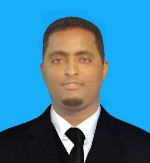A case study of small and medium construction companies in Hargeisa
FEATURED PAPER
By Adebayo Adeboye Fashina1*, Funke Folasade Fakunle2, Sakariye Mahamed Abdilahi3, and Jama Adam Salah4
1Reaserch, Evidence and Development Department, AdeFolasade Management Systems Consults, Lagos-Nigeria.
2Compliance and Auditing Department, AdeFolasade Management Systems Consults, Lagos-Nigeria.
3Independent Researcher, Hargeisa, Somaliland.
4Technical and Project Management Department, Amtel Telecom, Puntland, Somalia.
*Corresponding author: Adebayo Adeboye Fashina. adebayofashina@gmail.com
Abstract
This study aims at examining the possible impacts of implementing project management practices on the organizational performance of small and medium construction companies in Hargeisa. By utilizing a questionnaire survey design that examined 16 possible impacts of project management practices on the organization performance of small and medium construction companies, data were obtained from 30 small and medium construction stakeholders selected based on simple random sampling. The Cronbach’s Alpha, mean values and Relative Importance Index (RII) were computed for reliability check and ranking purposes using SPSS Statistics Software and Microsoft Excel Packages. Results show that increases market share (RII = 0.853), reducing risk involved in projects (RII = 0.853), higher degree of project successes (RII = 0.833), producing project quality deliverables (RII = 0.833), properly allocating resource (RII = 0.820) and increases the competitive advantage (RII = 0.820) are the six most significant impacts. This study will provide stakeholders in the small and medium construction industry with an improved understanding on the way project management practices are vital to the success of SMEs. Moreover, the findings from the current study can be useful for the partners of the Somaliland government when developing programs for funding of activities that is targeted at advancing the performance of SMEs in Hargeisa.
Keywords: Project Management, Impacts, Small and Medium Construction Companies, Low- and Medium Income Countries, Organizational Performance, Hargeisa
- Introduction
In recently years, the introduction of new technologies, improved and new management system, and the need for timely delivery of projects have increasingly changed the global construction industry [1]. As such, the demand for project managers has dramatically increased in the last decade, making project management a critical part of any successful project or industry [2], [3]. This is why the significance of the role of the project manager in small and huge projects will continue to be recognized more and more, around the globe [4]. Meaning that Project Management would continue to surge as a result of the needs for a management system to manage and achieve the specifications of a huge project in terms of its schedule, cost, and quality. However, standardization is essential for the continuous advancement of the project management best practices in an effort to improve organizational performance [5]. As result, project management has rapidly changed from a pragmatic practice to a knowledge-based area that is now internationally accredited and extremely recognized as a profession worldwide [6].
So, as organizations continue to hunt for novel and improved ways of attaining competitive advantage, it is important for businesses to examine the size of each of their functional areas in order to advance their organizational performance [7]. Project management thus, plays a central role in the variance competitive benefit of organizations and project management knowledge areas helps these organizations to manage the changes that may occur in the business environment [8]. Moreover, in recent times, modern approaches to management have continually advanced the influence of project management on the successful execution of projects [9]. This is why more organizations and SMEs are now applying different project management knowledge areas in their projects in an effort to improve their organizational performance which can in turn safeguard a lasting capability in the current technology driven business environment, globally [5], [10].
Overtime, project management has become an indispensable part of the management of high technology, a vital component in the globalization movement that has positively changed the global economy in the last two decades [11]–[13]. As a result of the hike in competition and globalization, risks in project are on the increase and managing such risks is becoming a vital part for the success of nearly all the projects carried out in the various industries [14], particularly the construction sector where high-risk projects are often executed [15], [16]. Minimizing risks in construction projects is a positive component of project management practice as it helps to identify possible risks that could hinder project success and initiate change mechanism to curb them [15], [17].
In most low- and medium-income countries, project management practice on one hand is mostly well-thought-out by the use of a few experts on contractual basis and a huge number of temporary workforces who come in at diverse phases of the project [18]. This kind of arrangement helps organizations to save cost. However, on the other hand, project management is still seen to be at its infancy in industries such as telecommunication [19], construction [20] etc. This is due to the fact that project management practices are mostly used when there is a high level of risk in projects particularly, when the timeline and budget of the project are of high priority [15], [21]. Consequently, by implementing project management companies, firms and organizations can minimize unforeseen/costly shocks and more importantly resources could be effectively allocated. This in turn improves communication among stakeholders and provides the top management with a succinct summary of the threats that could hinder the organization’s goals and objectives while facilitating better decision-making in due time [22]–[24]. So, project management involves the application of knowledge, skills, processes and procedures in project environment to efficiently, and appropriately attain the project goals [25].
Today, several SMEs including small and medium construction companies have indicated that the management of projects in a tactically manner via project management processes increases the efficiency of such SMEs [26], [27]. This eventually advances the organizational performances of these SMEs [26], [27]. However, the complexity of PM practices progression assessment is a major barrier that often hinders the application of PM in cases where the top executives are yet to completely embrace the worth or benefit that adequate investment in PM maturity can generate for their firms [28]–[31]. It is on this note that this research study attempts to explore the possible impacts of project management practices on the organizational performance of small and medium construction companies in Hargeisa, Somaliland. The outcome of this research study will thus assist future researchers and graduate students that might want to carry out related studies in other parts of Somaliland or elsewhere. Moreover, the current study provides new insights that could guide key stakeholders in the small and medium construction companies, government agencies and partners in the development and formulation of fresh strategies that are essential for the application of project management in advancing the operation of SMEs in the nearest future, particularly in the construction industry.
The first part of this paper presents the background introduction to the application of project management in SMEs. The second part discusses the major concepts of the project management in terms of project processes, project life cycle and project management system. Besides, the research methodology adopted in this study is presented in the third part before expounding on the findings and implications of the current study in the fourth part. The last part of this paper presents the concluding remarks and recommendations on how project management can effectively influence the organization performance of small and medium construction companies in Hargeisa and elsewhere.
More…
To read entire paper, click here
How to cite this paper: Fashina, A. A., Fakunle, F. F., Abdilahi, M. A., & Salah, J. A., (2020). Investigating the possible impacts of implementing project management practices on organizational performance: A case study of small and medium construction companies in Hargeisa; PM World Journal, Vol. IX, Issue XII, December. Available online at https://pmworldlibrary.net/wp-content/uploads/2020/12/pmwj100-Dec2020-Fashina-et-al-Investigating-possible-impacts-of-implementing-PM.pdf
About the Authors

Dr. Adebayo Adeboye Fashina
Lagos, Nigeria
![]()
Dr. Adebayo Adeboye Fashina is a young certified management consultant (CMC), professional researcher, educator and education management consultant with over nine years of significant international experience working on STEM education, EOMS/Project management research and teaching, science research and teaching, and capacity building at various levels of education across Africa.
Dr. Adebayo hold a Bachelor’s degree in Physics/Electronics, MSc. in Theoretical Physics and Ph.D. in Theoretical and Applied Physics. He currently works with AdeFolasade Management Systems Consults, Lagos-Nigeria as the Interim Director of Research, Evidence and Development. Prior to his present job, he worked as a Researcher/GTA/Lecturer-B at AUST before joining Kampala International University, Uganda as a Senior Lecturer. He later worked as an Associate Professor of Applied Physics at William V. S. Tubman University, Liberia and as an Associate Professor of Physics and Engineering Management at Gollis University, Hargeisa. He was nominated for the 2016 Sustainable Energy Africa Awards and shortlisted as one of the three finalists in the ”Emerging Leaders” award category at the 2016 Nigeria Energy Forum.
Dr. Adebayo has conducted training workshops, seminars and given speeches/talks/presentations at local and international conferences. He has published more than 30 articles in reputed journals and is an active reviewer of many international journals. He is a motivated, energetic and focused individual with strengths in innovative teaching approaches, interdisciplinary research, data analysis, teacher training and team management. His research interest includes sustainable living, project management, RE policy and management, education organization management system (EOMS), educational planning, photonic nanostructures of materials etc. He is a fellow of African Scientific Institute, USA and the Institute of Management Consultants, Nigeria.
Dr. Adebayo can be contacted on adebayofashina@gmail.com or afashina@gollisuniversity.org

Funke Folasade Fakunle
Lagos Nigeria
![]()
Funke Folasade Fakunle is a young female NEBOSH international diploma qualified professional with 10 years of significant QHSE experience in QHSE management, training and consultancy. Being passionate about Health, Safety and Environment (HSE) and management system in the workplace, she has acquired certifications in Process Safety: Hazard Operability study (HAZOP), Lean six sigma (Green Belt Holder), ISO 9001 Lead Auditor, OHSAS 18001 Lead Auditor, AOFAQ Level 3 Award in Education & Training, NEBOSH International Diploma in Occupational Safety and Health, NEBOSH International General Certificate in Occupational Safety and Health, Project Management, Rigging Safety and Inspection etc.
Funke received a B.Sc. degree in Mathematics from the University of Uyo, Akwa-Ibom, Nigeria in 2008. Over the past 10 years, she has gained significant QHSE experience in various industries. These include construction, oil & gas, logistics and transportation, telecommunication, manufacturing, banking and security sectors. She is a register Professional/Associated Member of the International Register of Certificated Auditors (IRCA), International Institute of Risk and Safety Management (IIRSM), and Society of Petroleum Engineers (SPE).
As an QHSE Consultant/Trainer at present, she conducts QHSE training, consulting and auditing/evaluation exercises that help improve the QHSE Management Systems of various organizations. This allows her to adequately provide her clients with the necessary advisory services that include but not limited to HSE employee orientation training, development, planning and implementation of QHSE Management Systems, QHSE auditing, Environmental Management System, process improvement and so on.
Funke can be contacted on funkefolasade7@gmail.com

Sakariye Mahamed Abdilahi
Hargeisa, Somaliland
![]()
Sakariye Mahamed Abdillahi is an independent researcher and an Assistant Lecturer in the department of telecommunication engineering at Gollis University. Sakariye hold a B.Sc. degree in Telecommunication Engineering and Master of Arts in Project Management from Gollis University, Hargeisa, Somaliland. He is proficient in communication, training, organization, the use of social media outlets, and the use of Microsoft Office packages such as MS Word, MS Excel, and MS Power point. His research interests evolve around the application of project management knowledge areas to telecommunication projects, project and engineering management, application of project management knowledge areas to small and medium enterprises (SMEs) etc.
Sakariye can be contacted on zakariemoe@gmail.com

Jama Adam Salah
Puntland, Somalia
![]()
Jama Adam Salah is a young project & power system engineer, researcher and educator with over 3 years of significant experience working on telecommunication projects, data centers, base stations, renewable energy technology projects and so on. He holds a bachelor degree in Telecommunication Engineering with the honors from Gollis University, Somaliland, a Postgraduate Diploma in Education Management and Higher Teaching from Islamic University, Uganda (IUIU), Kampala, Uganda and a Master of Science in Electrical Engineering (Power and Energy option) from Kampala International University, Kampala, Uganda.
Prior to his current job with Amtel Telecom, Puntland, Somalia, as a Power Systems Engineer, Jama worked as a Part-time lecturer at Gollis University, University of Hargeisa and others before joining Renewable Energy Hub Co, as a project engineer and manager. He has since been involved in Mega project across East Africa particular, Somalia. He is proficient in project proposal writing, project cost analysis training, and the use of Microsoft Office packages such as MS Word, MS Excel, and MS Power point.
His research interest includes the design and simulation of RET projects, project management practices in telecommunication and construction industries etc.
Jama can be contacted on engr.jama@gmail.com









